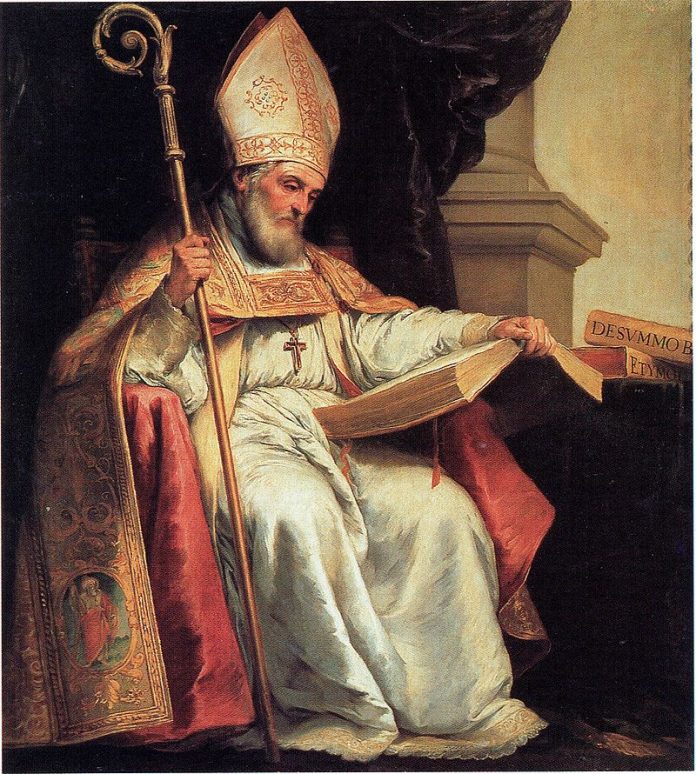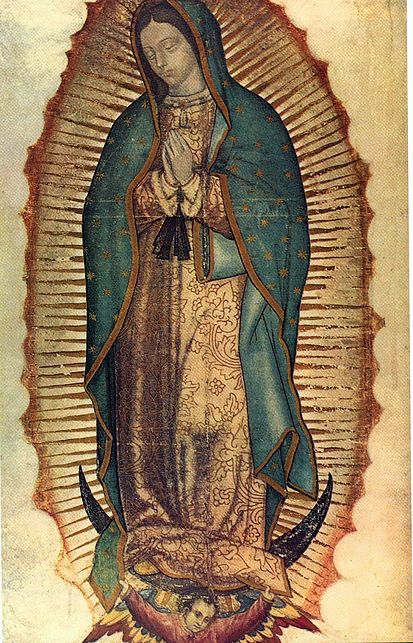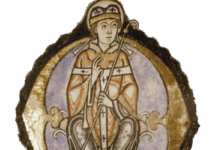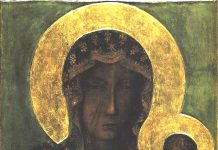Today, April 4th is the commemoration of Saint Isidore of Seville (560-636) a bishop and doctor of the Church during a tumultuous age, when civilization was crumbling, coming apart at its very seams, which may sound sort of au courant. Then again, the form of this world has always been passing away. Through it all, Isidore guided his diocese, which he had assumed after the death of his brother and fellow bishop, Leander, for three fruitful decades.
Called the most learned man of his time, Isidore was truly remarkable, famous for many things: the holiness of his life, the prudence with which he oversaw his flock, his voluminous writings, the shoring up of education. Having been educated himself in the ancient ‘trivium and quadrivium’, Saint Isidore helped shore up what was known as the ‘liberal arts’, and helped found schools, which inspired future universities and colleges.
He was also renowned for his voluminous writings, the most famous of which were his Etymologies, a twenty volume (!) early encyclopedia/dictionary summarizing all the knowledge that was then known, much used right up until the early Middle Ages, and oft-quoted by Saint Thomas Aquinas in his Summa Theologica. This remarkable work of erudition (containing, as a contemporary put it, everything one needed to know, albeit, with some ‘etymologies’ that were a bit fanciful) provided the basis for all the encyclopedias, summaries and anthologies that were to dot the intellectual landscape in the centuries to follow. We may even surmise, if one wants to think in such terms, that Isidore’s endeavour to encapsulate all erudition in one place has reached its end point in the vast repertoire of knowledge known as ‘Wikipedia’.
One may further surmise that is why Saint Isidore has officially been proclaimed the patron saint of the Internet, or the World Wide Web, even if it was invented a millennium and a half after his death – but a very fitting intercessor for our age.
It is a curious paradox (so sayeth the aforementioned Wikipedia article!) that although Isidore’s Etymologies preserved the substance of ancient works that have been irrevocably lost, the work also helped lead to the same very loss of those works. That is, so the argument goes, scholars relied so much on Isidore’s summaries, that many works were not copied, or copied enough to be handed on to posterity.
The same could be said for the modern internet, upon which we – students, teachers, researchers and everyone else – rely, perhaps, too heavily, ignoring the very primary and secondary sources that they summarize, describe and collate. It is far easier to read a summary of Sea Wolf, the Iliad, any of Jane Austen’s romantic escapades, or, dare I say it, even the Fathers of the Church, the Summa, and, yes, the Holy Scripture themselves, than it is to read the actual primary sources. But the latter are so much more fruitful and rewarding.
As Isidore puts it in his Book of Sentences, from Today’s Office:
See also the reviews in these pages on Nicholas Carr’s book (here as well) about the Internet dumbing us down. Isidore would be mortified if his own works were to have done the same!
I suppose the moral is that we should use what tools we may for the purpose for which they were created. Bishop Isidore of course meant for his readers to have read or read the original works that he himself summarized, if at all possible. And the internet which he now oversees from heaven should be used for the same purpose: To lead us to deeper knowledge, to appropriate what we read, and make it our own, and not take the too easy path too often taken. This requires the oft-overlooked virtue of industriousness, the capacity to stay on the task at hand, stick-with-it-ness, perseverance. We must cultivate, as Cardinal Newman exhorted in his Idea of a University, a magnanimous mind and soul, one that sees the broader and wider, even the eternal perspective, and not focus only on the hic et nunc, the here and now, or, what is worse, what is presented as the ‘consensus’, without doing the work to make up our own minds.
As Alexander Pope would warn in 1709:
A little learning is a dangerous thing;
drink deep, or taste not the Pierian spring:
there shallow draughts intoxicate the brain,
and drinking largely sobers us again.
So, dear reader, pull yourself for a time away from the news, posts and tweets, and tolle, lege – pick up those books you’ve always wanted to read, pore over them, take the time to read and absorb, and live a little of the spirit of Saint Isidore, and exhort those around you – family, friends – to do the same.
Who knows what small role you may have in saving our culture and civilization; even in giving hope to our children and youth, whom we, by God’s grace, may inspire?
Saint Isidore, bishop and doctor, ora pro nobis!











